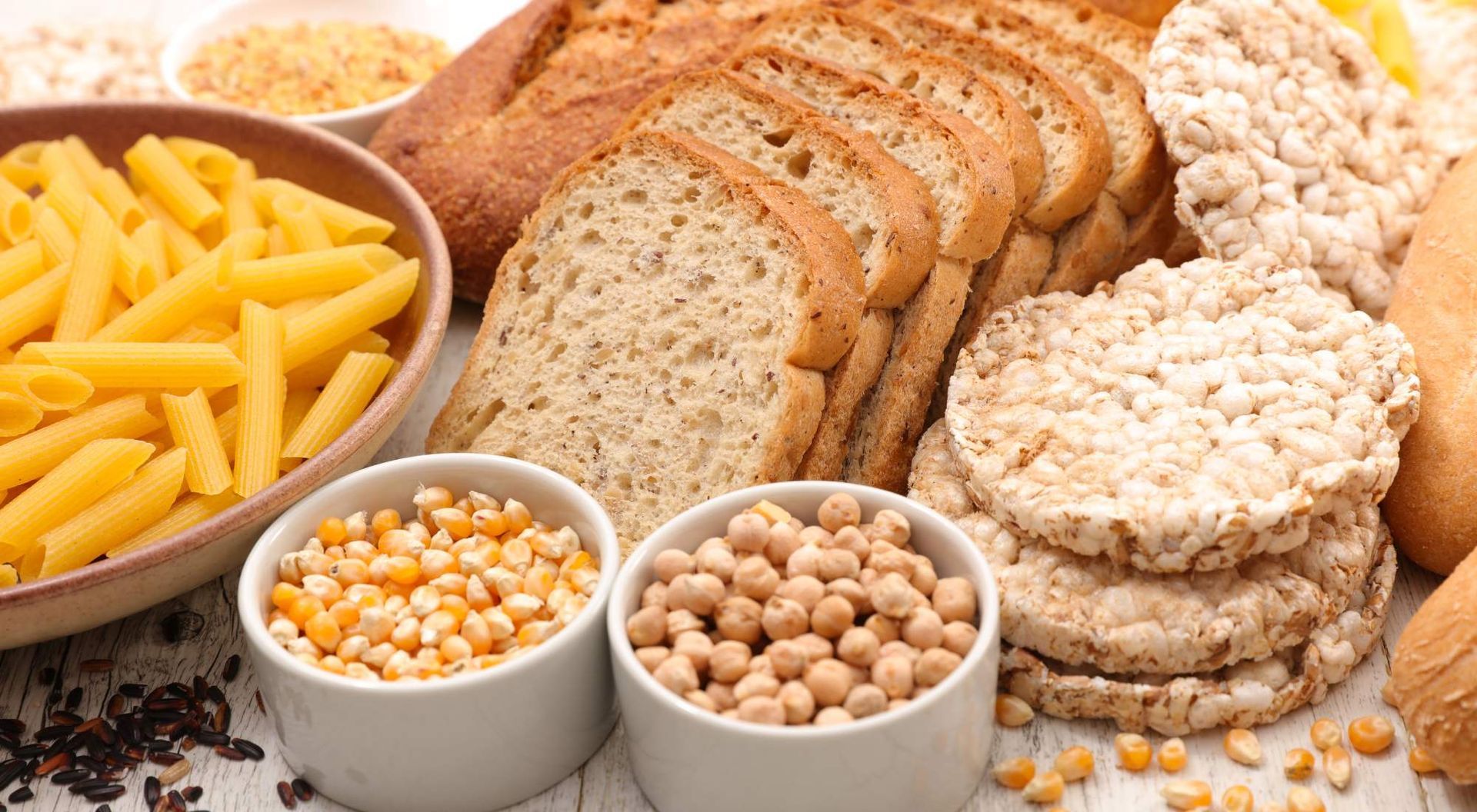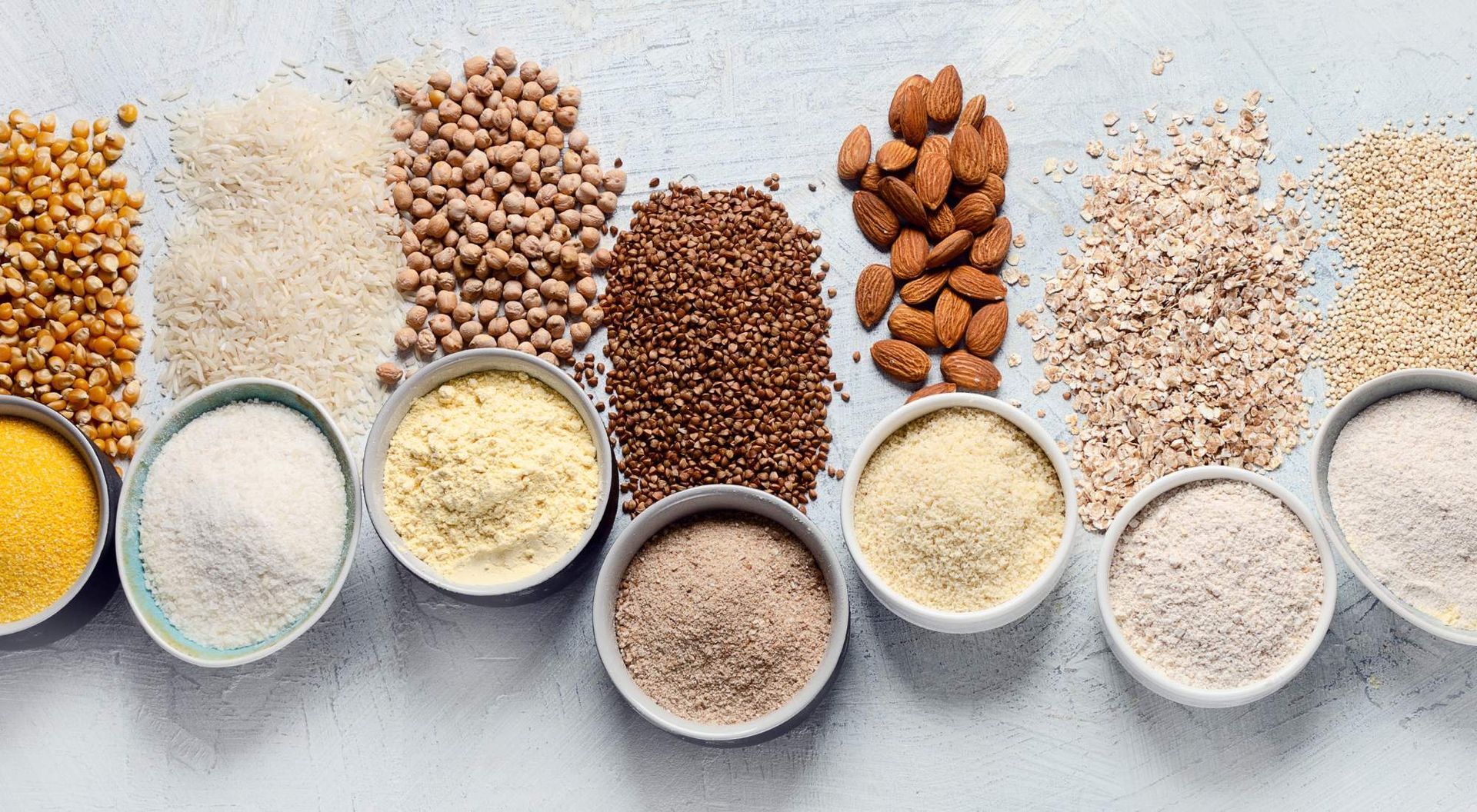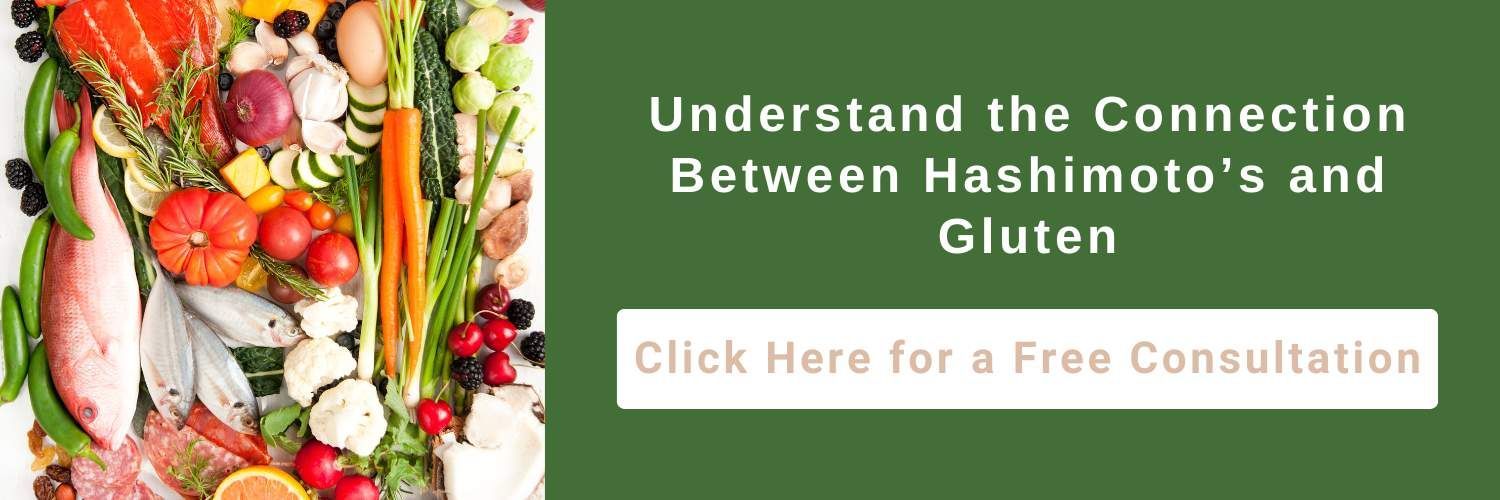Autoimmune Associations: Understanding the Connection Between Hashimoto’s and Gluten Sensitivity
You’re eating clean, doing all the “right” things, and still — something feels off. The fatigue lingers, the brain fog won’t lift, and despite your efforts, your body just isn’t responding. You’ve been told it’s Hashimoto’s, but medication alone hasn’t solved the puzzle.
What if gluten is part of the problem?
For many women with autoimmune thyroid issues, gluten sensitivity can quietly fuel inflammation and keep symptoms alive. Understanding this connection could be the missing piece in your healing.
In this article, we’ll break down how gluten and Hashimoto’s are connected, and explore holistic, nutrition-focused strategies to help you feel better — naturally.
Table of Contents
What Is Hashimoto’s Disease?
Hashimoto’s disease is an autoimmune condition where the immune system mistakenly attacks the thyroid gland — a small, butterfly-shaped gland in your neck that plays a major role in regulating metabolism, energy, and hormones.
Over time, this immune attack leads to chronic inflammation and often results in an underactive thyroid (hypothyroidism), meaning your body isn’t producing enough thyroid hormones to function optimally.
Common symptoms of Hashimoto’s include:
- Fatigue or sluggishness
- Brain fog
- Weight gain (despite no changes in diet or activity)
- Hair thinning
- Dry skin
- Cold sensitivity
- Depression or anxiety
- Irregular or heavy periods
Hashimoto’s is most common in women and often develops slowly, which can make early detection difficult. Many women are told their lab results are “normal” while still feeling far from well.
Understanding the root causes and triggers — including potential food sensitivities like gluten — is key to managing symptoms more effectively and supporting your thyroid through holistic nutrition.
The good news? This is exactly what HealthierU specializes in. We support women with thyroid conditions through personalized, nutrition-focused care. If you're ready to feel like yourself again, reach out to learn about
hypothyroidism treatment in Brooklyn.
What Is Gluten Sensitivity?
Gluten sensitivity is a condition where the body reacts negatively to gluten — a protein found in wheat, barley, and rye. For some, gluten can trigger immune responses or digestive distress, even in the absence of a diagnosed allergy.
There are two main types of gluten sensitivity:
- Celiac disease – An autoimmune condition where ingesting gluten triggers the immune system to attack the lining of the small intestine. This can lead to malabsorption of nutrients and widespread inflammation throughout the body.
- Non-celiac gluten sensitivity (NCGS) – While it’s not an autoimmune or allergic disorder, NCGS still causes symptoms like bloating, fatigue, joint pain, and brain fog after consuming gluten. Unlike celiac disease, it doesn’t show up on standard blood tests or damage the intestines, making it harder to diagnose.
Common symptoms of gluten sensitivity:
- Bloating, gas, or abdominal pain
- Fatigue
- Brain fog
- Headaches or migraines
- Joint or muscle aches
- Skin issues like eczema or rashes
- Mood changes, including anxiety or irritability
While the exact cause of non-celiac gluten sensitivity isn’t fully understood, it’s believed to involve immune activation, gut imbalances, or a reaction to poorly digested gluten fragments. For women with autoimmune conditions like Hashimoto’s, gluten may act as a hidden trigger that
worsens inflammation and disrupts hormone balance.
How Are Hashimoto's Disease and Gluten Sensitivity Related?
At first glance, Hashimoto’s and gluten sensitivity (especially celiac disease) might seem like separate issues — but they overlap more often than you’d expect. Both can be considered autoimmune or immune‑mediated conditions, and having one autoimmune condition often raises your odds of developing another.
In fact, people with Hashimoto’s are at higher risk of also having celiac disease. One Mendelian randomization study found that having Hashimoto’s increases risk for celiac disease (OR ≈ 1.54).
Other observational research shows significantly elevated rates of thyroid autoimmunity in individuals with celiac disease compared to controls — sometimes up to three times higher.
In a Turkish cohort of celiac patients, approximately 17% also had Hashimoto’s thyroiditis.
That said, the evidence does not clearly demonstrate a direct causal link in every case. Some reviews caution that the science is still in its early stages and results are mixed.
For instance, while
some studies suggest gluten removal may reduce antithyroid antibody levels or ease symptoms,
others conclude that there’s insufficient evidence to broadly recommend a gluten-free diet for all Hashimoto’s patients.

Does Gluten Really Affect Hashimoto’s?
Gluten doesn’t directly cause Hashimoto’s, but it may worsen symptoms in some individuals by triggering inflammation, especially in those with gluten sensitivity or celiac disease. Many patients report improvement in energy, digestion, and brain fog after removing gluten.
While not everyone with Hashimoto’s has gluten sensitivity, the immune systems of autoimmune patients are often more reactive. Inflammation from gluten may stress the gut lining (known as leaky gut or increased intestinal permeability), which has been linked to autoimmune flare-ups.
Some small studies have shown that a gluten-free diet may help lower thyroid antibodies in certain individuals with Hashimoto’s, but research is still mixed. For example, one
2022 review concluded there is "no clear evidence" that gluten elimination benefits
all Hashimoto’s patients — but acknowledged that some people may feel significantly better after making the change.
Will a Gluten-Free Diet Help Hashimoto’s?
Some studies suggest that a gluten‑free diet may reduce autoantibody levels (like anti‑TPO and anti‑TG) in certain women with Hashimoto’s, especially those who are drug‑naïve or who also have evidence of gluten sensitivity (but not full celiac disease).
However, other studies show no significant improvement in thyroid hormone levels, antibodies, or inflammation for many people with Hashimoto’s who do not have coexisting gluten issues.
From the above studies, we can conclude:
- If you have both Hashimoto’s and signs of gluten sensitivity (or celiac disease), trying a gluten‑free diet may lead to symptom improvement — less fatigue, better digestion, and maybe lower antibody levels.
- For those without gluten sensitivity, going gluten‑free doesn’t guarantee improvement and could come with downsides (nutritional gaps, increased cost, etc.).
- Duration matters: several studies (cited above) run for 6 months or longer show more promising results than very short trials.
- Always pair dietary changes with proper monitoring (labs, symptoms) and under guidance—especially since Hashimoto’s also involves thyroid hormone replacement, nutrient status (selenium, iodine, vitamin D), and overall inflammation.

Hallmarks of a Gluten-Free Diet for Patients With Hashimoto’s Disease
For Hashimoto’s patients exploring a gluten-free diet, the goal isn’t perfection — it’s reducing immune stress. A gluten-free diet should be nutrient-dense, not just gluten-free. Working with a nutritionist ensures you get support for your thyroid and whole body.
Want expert help tailoring your diet to Hashimoto’s? Request a holistic nutrition consultation with
HealthierU today.
Avoid Gluten-Containing Grains
If you’re managing Hashimoto’s and exploring a gluten-free diet, it’s essential to eliminate all sources of gluten — not just the obvious ones.
The following grains contain gluten and should be avoided:
- Wheat (including varieties like spelt, farro, einkorn, and durum)
- Barley
- Rye
- Triticale (a wheat–rye hybrid)
- Malt (usually derived from barley)
- Brewer’s yeast (if derived from beer brewing)
Even foods that don’t naturally contain gluten, like oats, corn products, or packaged snacks, can be cross-contaminated during processing, unless labeled certified gluten-free.
To reduce exposure and inflammation, it’s best to stick with whole, unprocessed, gluten-free foods and read labels carefully.
Eat a Plentiful Variety of Naturally Gluten-Free Foods
A gluten-free diet for Hashimoto’s should focus on variety and nutrient density — not restriction. Fortunately, there are plenty of naturally gluten-free foods that support thyroid function and overall wellness.
Here are excellent staples to include:
- Fresh fruits and vegetables – rich in antioxidants, fiber, and essential vitamins
- Lean proteins – chicken, turkey, grass-fed beef, eggs, and wild-caught fish
- Legumes – lentils, chickpeas, and black beans (if tolerated)
- Gluten-free whole grains – quinoa, brown rice, millet, buckwheat, and certified gluten-free oats
- Healthy fats – olive oil, avocado, coconut oil, nuts, and seeds
- Fermented foods – sauerkraut, kimchi, and unsweetened yogurt for gut health
- Herbs and spices – turmeric, ginger, rosemary, and others that support inflammation reduction
Focusing on real, whole foods helps reduce inflammation and provides the nutrients your thyroid needs to function optimally.

Consume Alternative Sources of Missed Vitamins and Minerals
When you cut out gluten-containing grains — especially enriched wheat products — you may also lose key nutrients that are commonly added to them, including:
- Iron
- Calcium
- Fiber
- Thiamin (B1)
- Riboflavin (B2)
- Niacin (B3)
- Folate (B9)
To avoid deficiencies, it’s important to include nutrient-dense, naturally gluten-free alternatives in your diet. Depending on your needs, foods like leafy greens, legumes, seeds, eggs, nuts, and fortified gluten-free products may help fill the gaps.
Since needs vary from person to person, especially with autoimmune conditions like Hashimoto’s, it’s best to consult with a healthcare provider or holistic nutritionist to assess whether supplementation or targeted foods are needed.
HealthierU can help you build a balanced gluten-free plan that supports both your thyroid and your nutrient needs. Book a nutrition consultation today.
5 Diet and Lifestyle Changes That May Help Hashimoto’s Patients
#1: Anti-Inflammatory Diet
Chronic inflammation is at the root of most autoimmune diseases, including Hashimoto’s. An anti-inflammatory diet can help calm the immune system, reduce flare-ups, and support better energy, digestion, and mental clarity.
This way of eating emphasizes:
- Whole, unprocessed foods
- Colorful vegetables and fruits
- Healthy fats (like olive oil, avocado, nuts, and seeds)
- Wild-caught fish and clean proteins
- Herbs and spices with anti-inflammatory properties (like turmeric and ginger)
It also limits:
- Processed foods and refined sugars
- Industrial seed oils (like soybean or corn oil)
- Excess alcohol or caffeine
- Food triggers like gluten and dairy
Reducing inflammation through nutrition is one of the most effective, natural ways to support thyroid function — especially when combined with other holistic lifestyle shifts.
#2: Autoimmune Protocol Diet
The Autoimmune Protocol (AIP) Diet is a more structured version of an anti-inflammatory diet designed specifically for people with autoimmune conditions like Hashimoto’s. It focuses on removing foods that may trigger immune reactions and healing the gut.
The AIP diet typically eliminates these foods for a period of time:
- Grains (including gluten)
- Legumes
- Dairy
- Eggs
- Nuts and seeds
- Nightshades (like tomatoes, peppers, and eggplant)
- Refined sugar, processed foods, and food additives
Instead, it emphasizes:
- Nutrient-dense vegetables
- Organ meats and bone broth
- Wild-caught fish and pasture-raised meats
- Fermented foods
- Herbs and non-inflammatory spices
After an elimination phase, foods are slowly reintroduced to help identify personal triggers.
While AIP can be restrictive, many Hashimoto’s patients report noticeable improvements in symptoms like fatigue, joint pain, and brain fog when following it under the guidance of a nutritionist.
HealthierU can help guide you through AIP in a practical, sustainable way tailored to your lifestyle.
#3: Lactose-Free Diet
Many people with Hashimoto’s also experience difficulty digesting lactose, the sugar found in dairy. It can lead to bloating, gas, and inflammation that further stresses the gut and immune system.
Switching to a lactose-free diet or choosing dairy alternatives (like almond, coconut, or oat milk) may help reduce digestive discomfort and support overall thyroid health.
#4: Whole Foods
A whole foods diet focuses on eating foods in their most natural, unprocessed form. This means prioritizing vegetables, fruits, lean proteins, healthy fats, and gluten-free whole grains.
For Hashimoto’s patients, whole foods provide essential nutrients without additives or preservatives that can trigger inflammation or immune reactions.
#5: Stress Reduction Practices
Stress can worsen autoimmune symptoms by increasing inflammation and disrupting hormone balance. Incorporating regular stress reduction practices is essential for managing Hashimoto’s effectively.
Helpful techniques include:
- Mindful meditation
- Deep breathing exercises
- Gentle yoga or stretching
- Regular physical activity
- Adequate sleep hygiene
- Spending time in nature
Finding what works for you can improve overall well-being and support thyroid health.
Discover the Power of a Holistic Approach to Hashimoto’s Disease with HealthierU
Managing Hashimoto’s isn’t just about medication — it’s about nurturing your whole body through personalized nutrition and lifestyle support. At HealthierU, we specialize in helping women with thyroid conditions uncover hidden triggers like gluten sensitivity and design balanced, healing plans tailored just for you.
Ready to take control of your thyroid health and feel your best? Request a holistic nutrition consultation with HealthierU today and start your journey toward lasting wellness.



